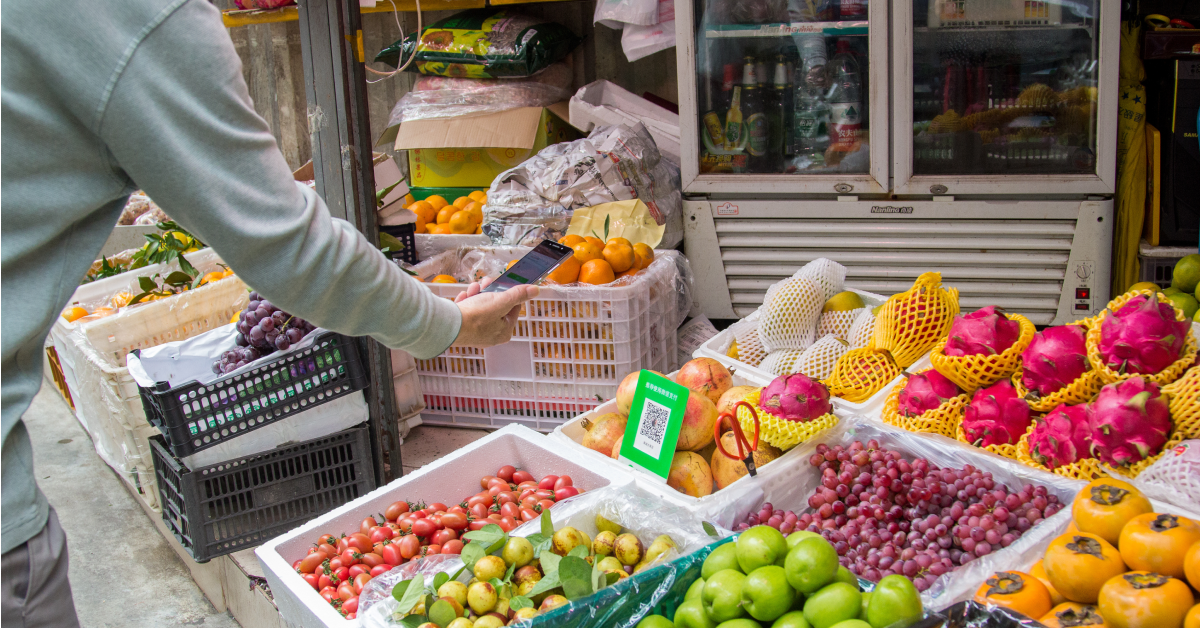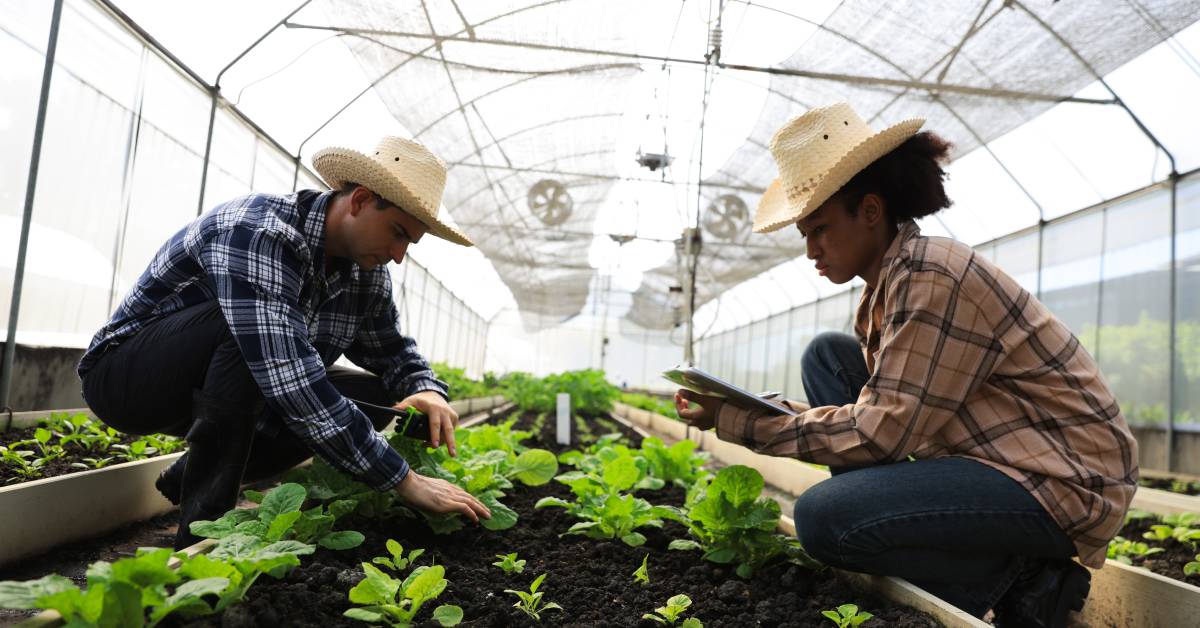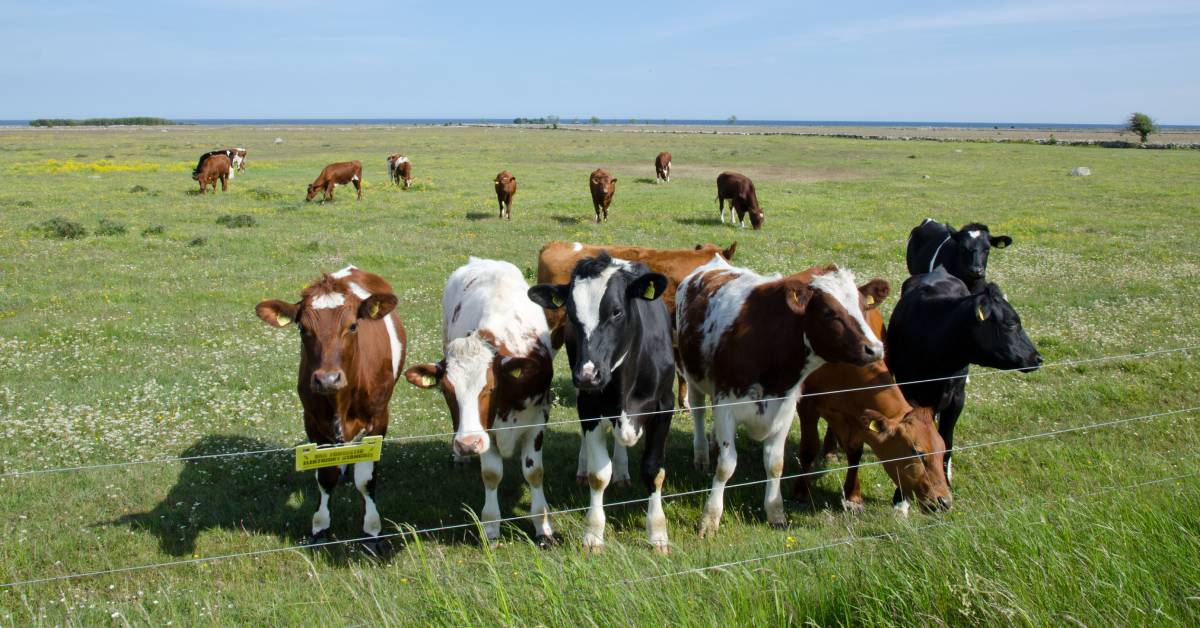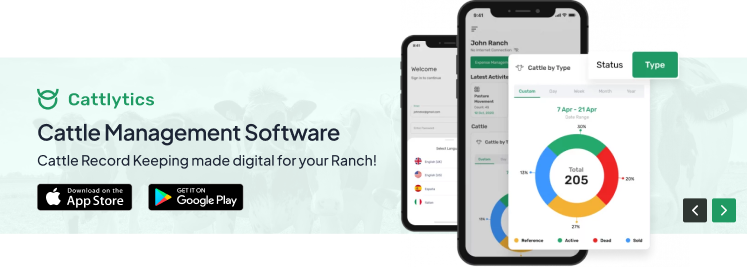Ensuring food safety and traceability in food industry is paramount. With increasing consumer concerns over foodborne illnesses and a growing demand for transparency, businesses face a pressing need to track the journey of their products with precision.
That’s when traceability software comes in. It is a powerful solution that enables growers and distributors to operate more efficiently. Custom software solutions promote food safety and cultivate trust with consumers by tracking the origin of fresh produce in real time and swiftly identifying defects or contamination.
Keep reading this blog and explore how such technology plays a vital role in enhancing food safety measures and meeting the evolving demands of the modern food market.
Challenges of Traditional Food Traceability Methods
The current food industry poses many challenges to traditional food traceability techniques, which usually involve storing records in paper-based systems and manually tracking information.
Firstly, manual record-keeping has been observed to be time-consuming and intensely chaotic. Written records are rough, untidy, and prone to errors due to poor visibility and possible consecutive transcription errors, resulting in poor tracking of the flow of products and logistics.
Manual data entry also aggravates these problems. Workforce imperfections, carelessness, shift changes, forgetful mistakes, and fatigue can compromise record quality and disrupt traceability.
In addition, conventional approaches are unsuitable for the real-time tracking and data analysis functions necessary for effective asset use. Traditional paper-based systems are less effective in capturing and processing information as and when required due to their structural inflexibility, which affects firms’ ability to respond promptly to contamination or recall.
Such a delay will likely have disastrous impacts on food security and compliance with safety regulations. Consequently, the challenges of managing manual records and paper-based tracking systems call for advanced and efficient technological solutions to food traceability.
Transitioning to digital solutions can solve these problems, enhancing the accuracy, effectiveness, and timeliness of tracing food products across the global chain.
Most traditional forms of traceability in food industry involve paper-based documentation and records, which are difficult to use effectively in a growing industry.
1. Inefficiency and Error-Prone
Some of the main problems associated with applying traditional approaches to the concept of traceability in food industry are inefficiency and the possibility of making mistakes.
With written record books and paper-based documentation, data entry can be difficult due to poor handwriting, poor or inaccurate transcription, and inconsistencies.
These errors can lead to incorrect identification of the food products and their flow, causing significant challenges to the overall traceability system.
2. Manual Data Entry
Traditional methods, for instance, incorporate data entry by hand, which only brings more inefficiencies and potential mistakes. This is due to carelessness, tiredness, and sometimes rushedness when entering essential details.
Furthermore, data entry is manual, requires a lot of time, and occupies many personnel, taking them from more critical organizational roles.
3. Lack of Real-Time Tracking
Another significant challenge of traditional methods of traceability in food industry is the inability to provide real-time tracking and data analysis capabilities. Paper-based systems lack the agility to capture and process information swiftly, hindering timely responses to contamination or recall.
This delay can seriously affect food safety and regulatory compliance, as swift action is often necessary to mitigate risks and protect public health.
4. Limited Traceability
Traditional methods of traceability in food industry may offer limited traceability, particularly when tracking complex supply chains or identifying specific ingredients or components within finished products.
Without robust tracking mechanisms, businesses may struggle to trace the origin of food products or respond effectively to quality control issues or recalls.
5. Compliance Challenges
Meeting regulatory requirements and compliance standards poses a significant challenge for businesses relying on traditional methods of traceability in food industry.
Manual record-keeping may not be sufficient to maintain detailed records necessary for audits and inspections. Failure to demonstrate compliance with food safety regulations can result in penalties, fines, and reputational damage for businesses.
Benefits of Custom Food Traceability Software Solutions
Adopting custom food traceability software solutions is a beacon of innovation and assurance in an era where food safety, transparency, and regulatory compliance are paramount for businesses and consumers.
These tailored digital platforms offer many benefits, revolutionizing how companies manage and monitor their products’ journey from production to consumption.
Using advanced technology and customizable features, custom food traceability software solutions empower businesses to enhance visibility, streamline operations, and safeguard public health.
Let’s delve into how these solutions optimize efficiency, accuracy, and trust across the entire food supply chain, setting new standards for excellence in food safety and quality assurance:
1. Enhanced Visibility and Transparency
The custom food traceability software provides the entire food narrative, from its origins to the plate. Everything about processed foods’ ingredients, processing, and shipment can be tracked in real-time.
This helps to realize complete openness all along the supply chain, thereby arming the stakeholders with helpful information about the movement and origin of the products.
2. Improved Efficiency and Accuracy
One of the most common benefits of custom software for traceability in food industry for businesses is the ability to collect data automatically, which minimizes the likelihood of inaccurate entries.
Companies should avoid paperwork that centralizes data control, as this would improve efficiency and accuracy regarding product traceability.
Its efficiency not only saves time in preparation and documentation but also reduces potential errors in recording that may lead to food spoilage or violation of regulations.
3. Streamlined Recall Management
Custom food traceability software saves time and enables precise control over recall since it points to the cause of contamination.
Through effective tracking, firms can track the affected products within a short duration by conducting recalls without necessarily causing more harm by exposing the public to more dangers.
Recall management has been made more proactive, thus improving response time and reducing the risks a company is most likely to encounter due to tainted foods.
4. Boosted Consumer Confidence
The clarity provided by custom traceability software strengthens consumer relationships with restaurants, who, in turn, value the ability to trace the food source they are consuming.
This is a process in which the manufacturing companies provide detailed traceability data. They would increase consumers’ trust in the quality and safety of the products produced and sold in the market.
Furthermore, it will be essential to continue feeding this traceability data into consumer-facing interfaces to improve engagement and create a closer connection between consumers and the food they are inclined to purchase.
5. Compliance with Regulations
Companies and traders can use custom food traceability software to help them record and document the food chain since food safety standards are being adjusted to meet international standards.
Self-monitoring capabilities integrated into the software guarantee that its use does not violate the requirements of the current legal Acts, thereby avoiding possible fines and reputational losses.
Effective custom software solutions offer these advantages that can help businesses provide evidence of compliance and ensure compliance with the necessary norms for food safety.
Why Choose Folio3 FoodTech Food Safety Software?
Folio3 offers cutting-edge solutions tailored to revolutionize food safety practices without compromise. Their food safety software stands out for its advanced features that address the industry’s challenges.
Folio3’s software provides a comprehensive view of the food journey with real-time tracking capabilities, ensuring enhanced visibility and transparency throughout the supply chain. Integrated data management streamlines operations, reducing manual errors and paperwork, thus boosting efficiency and accuracy.
Moreover, Folio3’s solution excels in recall management, swiftly pinpointing the source of contamination and facilitating precise recall actions. Their software empowers businesses to uphold the highest food safety standards by prioritizing consumer trust and regulatory compliance.
Through real-world success stories, Folio3 showcases tangible benefits achieved by their software, from improved traceability to streamlined operations and enhanced consumer confidence.
Businesses can streamline compliance efforts, boost productivity, and enhance food safety practices from farm to fork by choosing their software. Folio3 Food Safety Software offers a comprehensive solution designed to transform food safety management for various stakeholders in the food industry.
Here’s why you should choose their software:
Tailored Solutions for Traceability in Food Industry
Folio3’s software is specifically tailored for food service establishments, producers, processors, packers, and retailers, ensuring that each user’s unique needs are precisely met.
Automated Compliance
Folio3’s software digitizes food safety processes with automated HACCP plans and templates, ensuring compliance with FSIS, HACCP, and BRC regulations. Instant alerts further streamline compliance efforts, enabling timely responses to potential issues.
Real-Time Tracking
Folio3’s software offers real-time tracking of traceability tasks, guaranteeing visibility and transparency across the entire food supply chain. This feature facilitates quick decision-making and proactive management of food safety risks.
Seamless Integrations
The software integrates with various partners, enabling users to receive data for monitoring and enhancing food quality management. This integration-driven approach ensures a holistic solution to food safety challenges.
Efficiency and Productivity
Folio3’s software saves time and enhances productivity by digitizing food safety management processes. Teams can save up to 30% more time on food safety tasks, allowing them to focus on core responsibilities while maintaining compliance.
Real-World Success
Folio3 showcases real-world success stories, such as their collaboration with a leading American lamb processing plant, a market leader in the meatpacking industry. The processing plant achieved significant efficiency gains through automation, digitization, and improved compliance processes.
Comprehensive Support
Folio3’s software ensures seamless team management and task tracking with a user-friendly interface and intelligent notifications. From daily customized tasks to managing certifications and workshops, the software streamlines operations for enhanced efficiency.
Customizable HACCP Plans
HACCP has clear goals and aims that are easily set and met using Folio3’s flexible HACCP plan, which can be tailored to the user’s food safety needs. This means these organizations can adapt their measures concerning food safety to specific challenges and requirements.
Advanced Analytics
For convenience, it features advanced analytics that helps users gain insights into the processes involved in food safety. Real-time analytics allows business people to conduct analyses of trends and key performance indicators and enables businesses to enhance their food safety practices in real-time.
To experience Folio3’s software’s transformative potential, book a demo today and take the next step toward digital transformation in food safety management.
Conclusion
Consumers are now more concerned with the food they eat, so traceability in food industry is an essential factor in ensuring food safety and the reputation of food brands today.
Custom software solutions are pivotal in achieving complete traceability by offering tailored features and functionalities to address each business’s needs and challenges.
Unlike generic software, custom solutions can seamlessly integrate with existing systems, streamline operations, and provide real-time insights into the supply chain.
Consequently, Folio3 is a market leader in this industry, providing more than reeled-out food safety regimes’ solutions. Using its artificial intelligence, Folio3 enables businesses to digitize food safety management processes, automate compliance tasks, and optimize traceability efforts.
By choosing Folio3, enterprises gain a competitive advantage, ensuring compliance, enhancing efficiency, and safeguarding their brand reputation in an increasingly demanding market.
FAQs
How to Improve Traceability in Food?
Improving the food supply chain management requires adopting advanced methods, technologies, and mechanisms for recognizing food products in supply chains.
What is Food Traceability Software?
Food traceability software product is a technology solution that tracks food items and products as they move in the supply chain. It helps document and record data and acts as a tool to track data on food items’ origin, processing, and distribution.
How Do Food Tracking and Traceability Systems Contribute to Food Safety and Security?
Food tracking and traceability systems contribute to food safety and security by enabling businesses to quickly identify and respond to contamination, recalls, and foodborne illnesses.
What is Smart Traceability for Food Safety?
Smart traceability for food safety refers to integrating advanced technologies such as IoT (Internet of Things), AI (Artificial Intelligence), and data analytics to enhance traceability processes in the food industry.
What is the Food Safety Traceability Method Based on Blockchain Technology?
The food safety traceability method based on blockchain technology utilizes a decentralized digital ledger to record transactions and interactions within the food supply chain. Each transaction is cryptographically linked to the previous one, creating an immutable record of the product’s journey from farm to fork.
What is the FDA’s New Food Traceability Rule?
The FDA’s new food traceability rule is part of the FDA’s New Era of Smarter Food Safety initiative. This proposed rule establishes additional recordkeeping requirements for certain foods considered “high-risk” based on criteria such as their history of foodborne illness outbreaks or their potential for contamination.
Why is Traceability Important in the Food Industry?
Traceability in food industry is essential for several reasons. Firstly, it ensures food safety by enabling swift identification and removal of potentially unsafe products, thus protecting public health.







